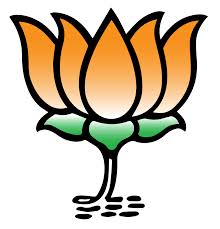Red-letter day for West Pakistan Refugees, Valmikis, Gorkhas in J&K assembly polls
Chakra (Bishnah), Sep 30 (PTI) Tuesday is a “red-letter day” for the West Pakistan Refugees, Valmikis and Gorkha communities, who have lived as “unwanted citizens” for over seven decades in Jammu and Kashmir.
These communities are eager to cast their votes in the ongoing assembly elections for the first time in history. This marks a monumental moment for many who have long lacked political representation.
Comprising over 1.5 lakh people residing in various areas of Jammu, Samba and Kathua districts, particularly in the border regions, members of these three communities are entering the electoral process to elect MLAs. Unlike in the past, candidates are now actively engaging with the areas in which they live.
“After residing in Jammu and Kashmir for the past 75 years as unwanted citizens, we are finally participating in the assembly elections for the first time in history. It is a dream come true for us.
“We still can’t believe that we are now citizens and voters of J&K. It is a red-letter day for us,” said Labha Ram Gandhi, president of the West Pakistan Refugees Action Committee, to PTI.
The 63-year-old refugee leader, who will be voting at Nundpur polling station in Samba on Tuesday, said no member of their community has contested elections this time, supporting those who have transformed their fate in Jammu and Kashmir.
“Credit goes to the prime minister and home minister for revoking Article 370, which enabled us to become citizens and voters of Jammu and Kashmir. We are grateful to them,” he added.
According to records, 5,764 families of West Pakistan Refugees, commonly known as WPRs, settled in various parts of Jammu in 1947. Presently, the number of West Pakistan refugees has increased to over 22,000 families, totalling about two lakh individuals.
Ahead of the voting day, West Pakistan refugees celebrated by exchanging sweets in Chakra and Chabay Chak in Samba and Jammu districts.
Following the abrogation of Article 370 and 35A, these communities have gained citizenship in J&K, along with all associated rights such as voting, employment, professional education and land ownership. In July, the J&K administration decided to grant proprietary rights of state land allocated to WPR families during their resettlement after the 1947 migration.
After casting their votes, West Pakistan refugees have planned to gather in large numbers in R S Pura on Tuesday to commemorate this historic occasion, Gandhi said.
In addition to WPRs, the Valmikis (Dalits), brought to J&K in 1957 from Punjab’s Gurdaspur district for sanitation work by the then-state government, will also be voting for the first time in Tuesday’s assembly elections.
Approximately 12,000 members residing in Gandhi Nagar and Dogra Hall areas, living in substandard conditions, were previously deprived of voting rights, educational opportunities, job opportunities and land ownership due to the absence of a state subject certificate.
With the scrapping of Article 370, both WPRs and Valmikis can now purchase land, apply for jobs in J&K and even contest elections. The Valmikis can now pursue alternative occupations as well.
The Valmiki community’s primary demand from the upcoming government is improvement in living conditions. With their newfound voting rights, they are hopeful of advocating for better housing, education and employment opportunities.
“Now that we are citizens of J&K, we have voting rights and all other privileges enjoyed by the state’s regular citizens. Tuesday’s assembly elections marks a historic moment for us. We are delighted on this occasion,” said Gaurav Bhati, president of the Valmiki Samaj.
“Our community members will also start contesting elections now. We can now explore new job opportunities. This was long overdue,” he said.
Similarly, the Gorkha community in Gorkha Nagar is also brimming with excitement, as they, like the WPRs and Valmikis, prepare to exercise their franchise in the assembly elections for the first time.
Their ancestors migrated from Nepal to Jammu and Kashmir decades ago to serve alongside the former Dogra Army. Even today, most families boast at least one war veteran.
“We express our gratitude to Prime Minister Narendra Modi ji and Home Minister Amit Shah ji for transforming our fortunes here. Thanks to their bold decision to revoke Article 370, we are now citizens of J&K and have been granted all rights.
“We will vote in the assembly elections for the first time. It’s a proud moment for us. We are delighted,” Karuna Chhetri, president of All J&K Gorkha Sabha, said.
More than 2,000 Gorkha community members reside in this colony, where houses are closely spaced and connected by narrow lanes.






